JDC ANNUAL REPORT
2023
At the end of 2023, the first chapter of the World Bank-UNHCR Joint Data Center (JDC) closed and the second opened. With the passing of that epoch, the first JDC strategy also concluded.
Over the past four years, we supported and implemented 62 activities that collected, analyzed, and standardized the data of forcibly displaced, stateless people, and their hosts. This work increased the quantity and quality of data and analysis available and the impact it has had. At the same time, we have also strengthened the capacity of national institutions.
When the JDC was established, microdata was collected by UNHCR in an ad hoc way. Much of it was not publicly available to protect people of concern. Now, most of this data is responsibly shared in the UNHCR Microdata Library and is increasingly standardized and of high quality. To fill the remaining gaps, UNHCR, with support from the JDC, has created a household survey that meets most of UNHCR’s data needs – the Forced Displacement Survey – which is currently being conducted in South Sudan, Cameroon, and Pakistan.
A sea change has also taken place within the World Bank with the widespread integration of forced displacement in analytics and operations. This was epitomized in the latest World Development Report, Migrants, Refugees and Societies, which proposes a framework that maximizes the development impact of cross-border movements on both destination and origin countries and on migrants and refugees themselves. But perhaps of more importance are the changes that have taken place in country programs where an increasing number of World Bank national household surveys include forcibly displaced populations.
An example of this is the Central African Republic, where the JDC supported the data collection of half a million internally displaced people (IDPs) that was used in the country’s first ever World Bank poverty assessment. This will help ensure that forcibly displaced people are not only accounted for, but also included in development programs.
Persistent conflict, the onset of new ones, and frequent climate shocks have caused an increase in forced displacement of 30 million since 2019, when the JDC was established. At the same time, the resources available to respond to this challenge are more and more constrained. This calls for increasing the effectiveness of our response by informing decisions with data and evidence.

Soukeyna Kane
Director,
Fragility, Conflict and Violence Group
World Bank

Dominique Hyde
Director,
External Relations
United Nations Refugee Agency (UNHCR)
On the shoulders of giants
A small partnership with a colossal task
At the end of June 2023, 110 million people worldwide were forcibly displaced from their homes. More than 1 in every 73 people are now forcibly displaced, with the majority – almost 9 in 10 – living in low- and middle-income countries.
The World Bank-UNHCR Joint Data Center on Forced Displacement (JDC) was established to act as a catalyst to transform the data landscape on forced displacement. Jointly institutionalized in the World Bank and UNHCR, the JDC brings together staff, resources, and capacity of both organizations. It works to catalyze sustainable change for affected populations by improving the socioeconomic evidence base for national policy, development, and humanitarian operations. The JDC did this through four objectives set out in its Strategy 2021-2023:
- strengthening statistical standards and systems;
- producing data and analysis;
- enhancing responsible data access, and
- building evidence and sharing knowledge.
Key Achievements in 2023
The JDC relies on two complementary modes of working. Globally, we convene and advocate around forced displacement data, and contribute to inter-agency processes, with the recognizable “brand” of the JDC which builds on the identity of our parent institutions yet is distinct in its own right. At national and regional levels (and using the largest part of our resources), we achieve results primarily by bringing together World Bank and UNHCR technical teams working in-country, enabling them to implement transformational data projects on forced displacement, made possible through JDC financial and technical support.
Global Activities
In 2023, the JDC continued to create traction on forced displacement data on the global stage. We drew attention to the opportunities and challenges of forced displacement data at high-level events like the World Data Forum and the Global Refugee Forum; contributed to important inter-agency processes like the Expert Group on Refugee, Internally Displaced and Statelessness Statistics (EGRISS) and the data stream of the UN Action Agenda on Internal Displacement; created space to build and exchange knowledge and to innovate on forced displacement; and generated awareness through various contributions in the blogosphere.
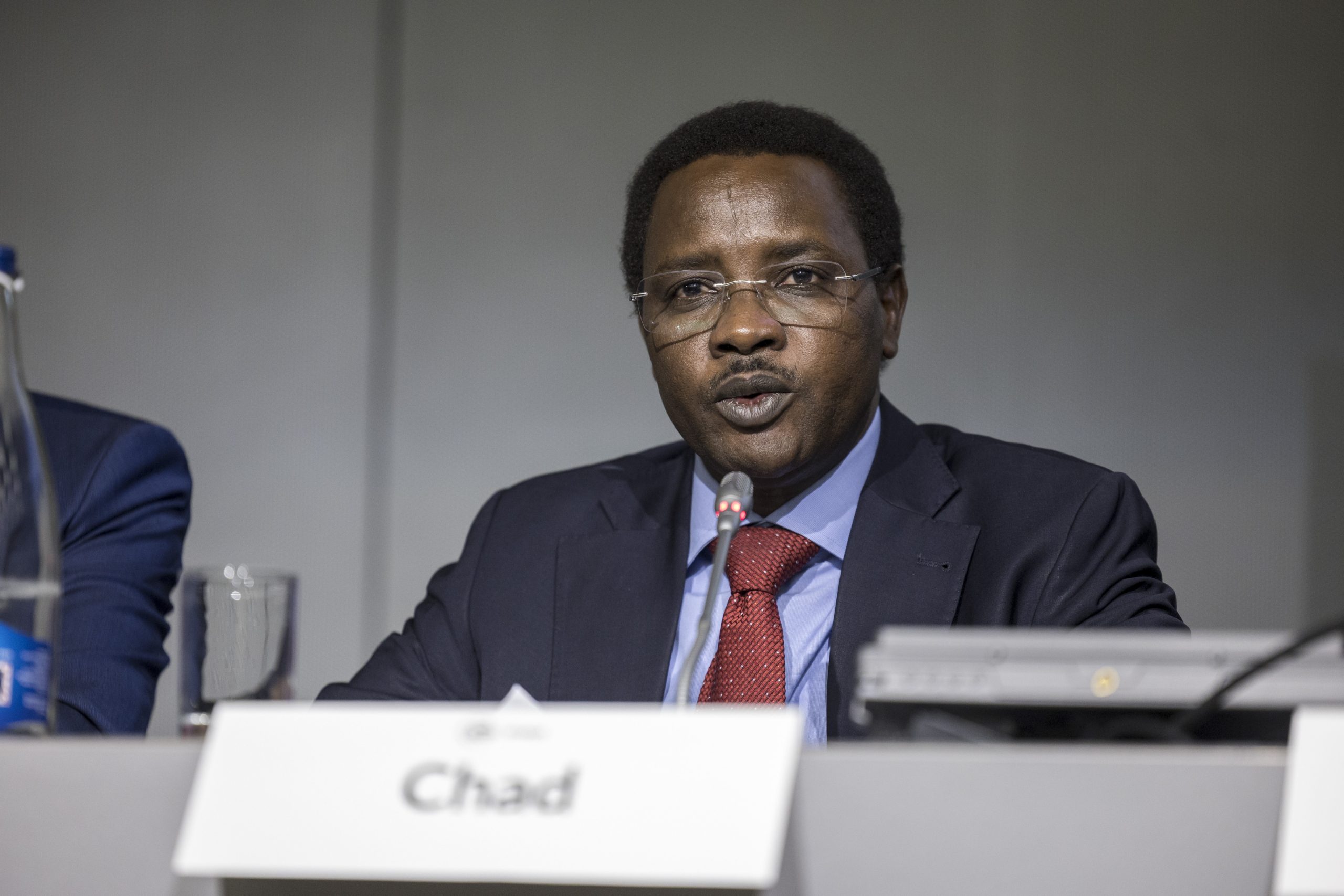
The Director General of the National Statistics Office in Chad (Institut National de la Statistique, des Etudes Economiques et Démographiques), Dr Baradine Zakaria Mousal, speaks at the Global Refugee Forum event jointly organized by the JDC.
Events
2023 started well for JDC when, we drew the attention the international statistical community to forced displacement data through events at the UN World Data Forum (a hybrid event on statistical inclusion of refugees and IDPs in national surveys, an expert panel on statelessness statistics, and a “learning lab”), the UN Statistical Commission (a side event on statistical inclusion of refugees and IDPs, and on statelessness statistics), and the International Forum on Migration Statistics.
The JDC also organized “Data, Displacement & Development”, in June, which enabled experts on displacement data to discuss the World Development Report 2023 with an audience of over 300 people. In December, after months of liaison and advocacy, we co-led a high-level side event at the Global Refugee Forum about the multi-stakeholder pledge on inclusion of refugees, IDPs and stateless persons in national statistics. Over 85 pledges were received from host countries, international and regional organizations and donors – evidence of the momentum which JDC and others have generated around statistical inclusion.
Developing Statistical Standards
The JDC continued to contribute significantly (financially, technically and with direction) to EGRISS, an entity mandated by the UN Statistical Commission to develop and maintain the international statistical standards on forced displacement and statelessness. In 2023, the JDC celebrated the endorsement of EGRISS’s recommendations on statelessness statistics by the UN Statistical Commission. This provides greater alignment and harmonization of statistics on statelessness across government, development and humanitarian partners. A review conducted at the end of 2023 found that 58 data production exercises in 24 countries had used the EGRISS recommendations.
Another important milestone was achieved in mid-2023, when – with technical leadership from JDC – EGRISS released its Compilers Manual, a guidance document that breaks the recommendations down for day-to-day statistical production. EGRISS also offered capacity building on the standrads to 142 national statistical institutions and released two methodological papers on identification and solutions, and launched an e-learning course. EGRISS also provided the Somali National Bureau of Statistics with support to produce IDP statistics for the country’s national statistical system. The JDC also participated in the data task force in the UN Action Agenda on Internal Displacement as well as the Data Responsibility Working Group.
Knowledge & Innovation
In 2023, the JDC also continued to connect technicians and practitioners and create spaces for the building and exchange of knowledge and innovation. The increased visibility of resources on the JDC website (a 12 percent increase in pageviews) such as newsletter, literature review and quarterly digests, demonstrated the advancement of evidence on forced displacement. In this way, the JDC is contributing to the body of knowledge that we have on this complex phenomenon.
At the end of 2023, the JDC also revealed a new product that makes it easier for researchers to find the microdata they need for their work: a dashboard called Forced Displacement Microdata, and its supporting documentation. This builds on JDC’s earlier engagement to help UNHCR evolve from a closed to an open data institution, impressively evidenced by the 700+ datasets now available on UNHCR’s Microdata Library which was established with support from the JDC. Looking beyond “raw” microdata to accessibility of data in its more refined form (that is, readily-compiled indicators for non-technical audiences) the JDC began another new project in 2023 that will help UNHCR expand its Refugee Data Finder to present socio-economic indicators on forcibly displaced.
Furthermore, in 2023, the JDC collaborated with the Building the Evidence on Forced Displacement (BEoFD) research program to develop a training program to make the latest socioeconomic research on forced displacement accessible to practitioners and policy-makers. The program attracted 729 registrations.
A related yet distinct achievement in 2023 was the signing of a global data sharing agreement between UNHCR and the World Bank, developed with support from the JDC, which will make collaboration on data between JDC’s parent institutions even more seamless in the future.” The new global Framework Data Sharing Agreement […] marks another important milestone in our collaboration with UNHCR” said Anna Bjerde, the World Bank’s Managing Director for Operations, upon signing the agreement. “This agreement will strengthen our analytical capacity and help our teams gather and responsibly share robust evidence to inform our programmes” added UN High Commissioner for Refugees Filippo Grandi on the occasion. This global agreement is being put to good use in several countries already and the implementing agreement to streamline its use at scale is being finalized.
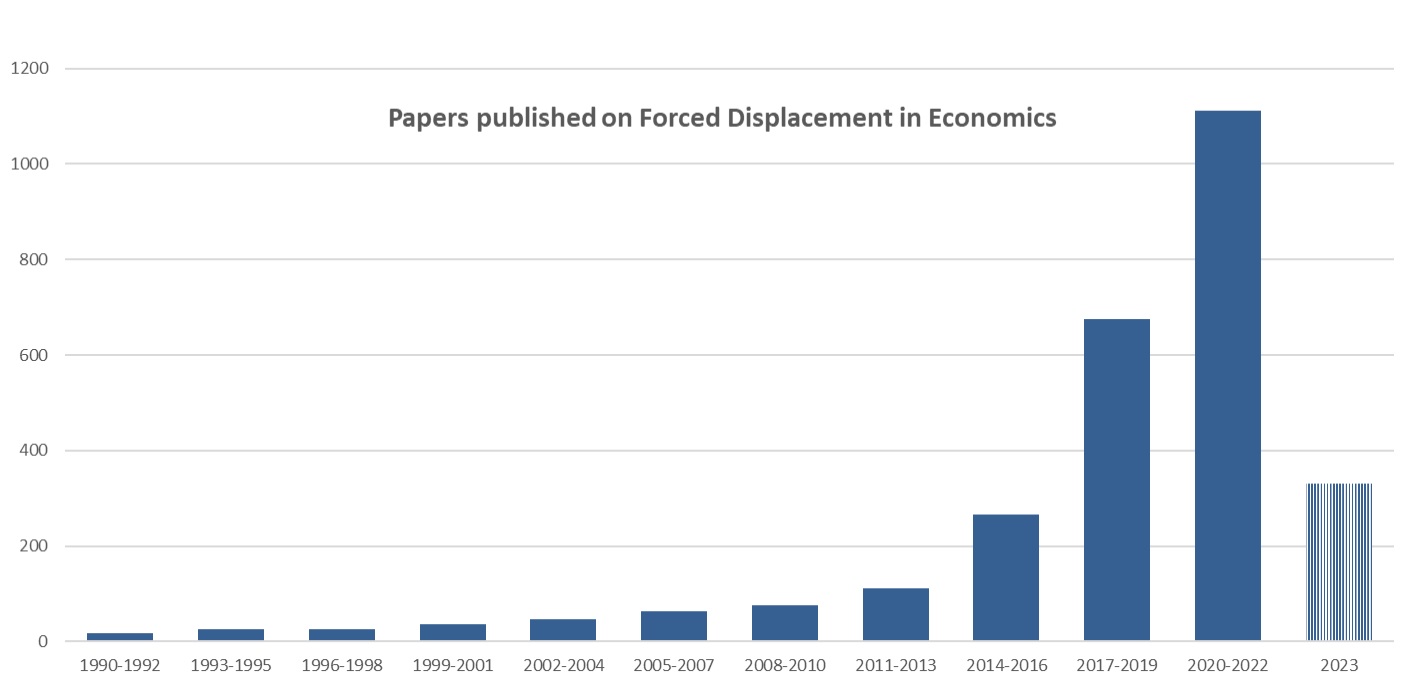
The JDC positioned itself as thought leader in 2023 with contributions in online media that showcased how data can improve our understanding of the links between forced displacement and employment, how innovation can help maximize the value of data, a roadmap for taking this forward, and the important role data plays in eliminating statelessness.
JDC Fellowships
Meshack Achore

The JDC fellowship allowed me to explore my research interest in evaluating the effectiveness of interventions to alleviate food insecurity among the forcibly displaced. I also garnered hands-on experience (i.e., data analysis, devising policies and making policy recommendations) on real-world issues to improve the health and socio-economic well-being of forcibly displaced people. Working with the JDC has been a rewarding experience.
Elizabeth Ahikiriza
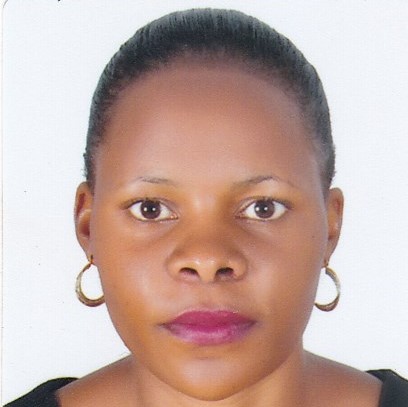
During my time at the JDC, I gained immense exposure to the use of data and evidence in humanitarian and development operations for forcibly displaced people. The fellowship offered me the opportunity to interact with several resourceful and talented people with whom I worked on different tasks. Besides learning a lot, my experience was engaging, challenging and rewarding which, I strongly believe will be instrumental in shaping my future career path.
National Activities
In 2023, JDC grew its portfolio of country-level projects by ten new activities in Afghanistan, Cameroon, Moldova, Peru, Burkina Faso, Uganda, Lebanon, DRC, Mali and Malawi, bringing the total number of national activities supported by the JDC to 43, across 35 countries. All new activities were carefully selected with a view to their contribution to the JDC’s strategic objectives as well as their ability to respond to operational data needs and support policy dialogue. These activities shed light on the living conditions of all populations covered by the JDC’s mandate, (refugees and asylum seekers, IDPs, stateless persons, and their hosts).
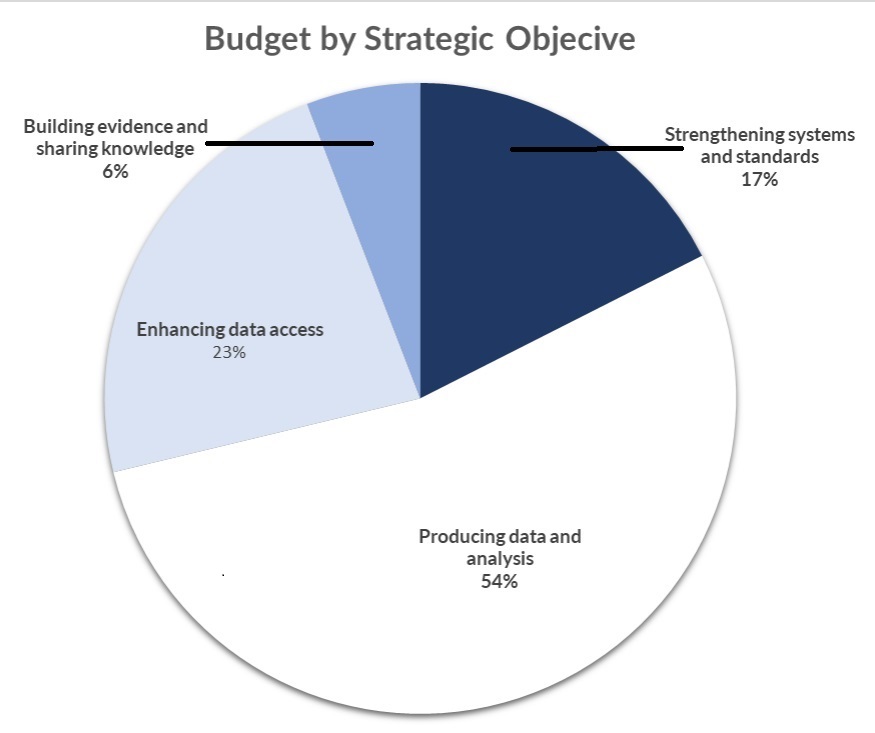
The JDC’s commitment to working with national statistical systems, building capacity and government ownership of data production and sustainability, was evidenced by the 59% of national activities that either included forcibly displaced or stateless persons in national household surveys and censuses or were stand-alone surveys of forcibly displaced carried out by national statistical offices. The advancement and expansion of JDC’s activities was evidenced by a clear year-on-year increase in the number of national activities that completed stages of data collection.
Highlights of 2023
The JDC concluded its support to an initiative we supported throughout our first mandate, namely economist positions in UNHCR regional and country offices to strengthen UNHCR’s analytical capacity in some of the areas most affected by forced displacement. Over the last four years, the JDC enabled the creation of eleven such positions, of which nine have been in country offices and two in regional bureaux. Nine of these positions have been retained by their respective offices, which is acknowledgment of the importance of an analytical function within UNHCR.
Collecting high-quality, comparable data is only possible with clear definitions, robust standards and rigorous methodology. This is particularly true of statistics on refugees, internally displaced (IDP) and stateless people, who have been largely excluded from national systems. The JDC continued to invest in the development and implementation of standards and systems that transform the foundation on which data on forcibly displaced populations is produced. In 2022, significant progress has been achieved:
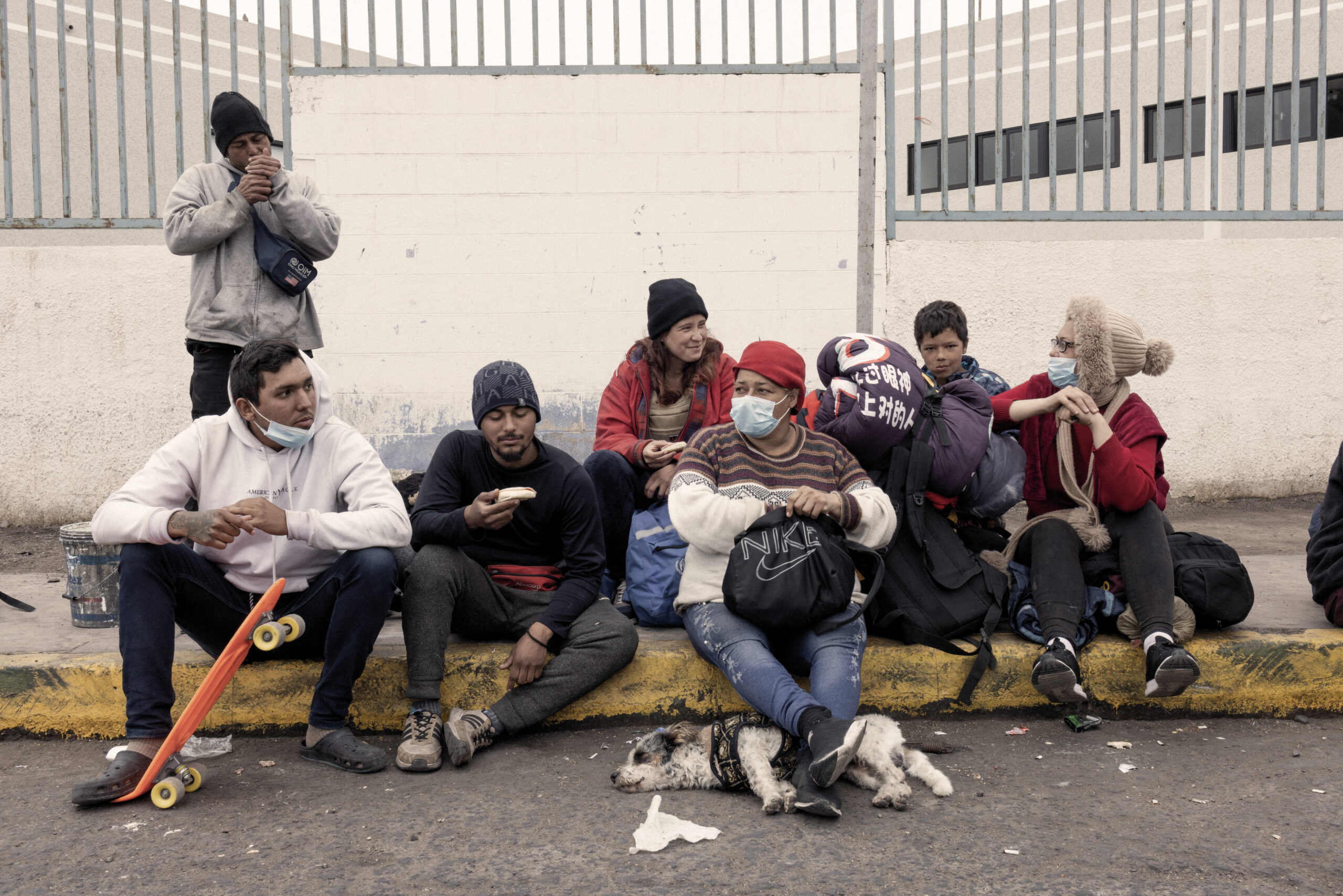
Moving Forward
The end of 2023 concluded the JDC’s initial period and strategy. With a positive appraisal from our parent institutions, a favorable independent mid-term review, and the generous support from our donors, JDC is thrilled to have been granted a second term from 2024-2027. This will allow us to expand and consolidate the achievements of the past four years. We have come a long way in a short time, but more remains to be done.
We know this extension of our finite lifespan comes with high expectations, and we do not take them lightly. We have learned from our first period through an independent mid-term review and an ongoing end-of-term review of JDC’s performance against our first strategy’s results framework. Building on this, and through broad-based consultations with 50 of our internal and external stakeholders, we have developed the JDC’s second strategy, covering 2024-2027.
The new strategy expands and refines our engagement in the forced displacement data space, and is built around four strategic priorities as well as an increased focus on sustainability and mainstreaming our work into our parent institutions:
Priority I – Systematic inclusion in national statistics
Priority II – Targeted production of high-quality data and timely analysis to inform policy and programs
Priority III – Data innovation to increase the quality, timeliness and accessibility of data
Priority IV – Operationalize data and evidence to strengthen solutions to forced displacement
The JDC team is excited about the coming four years. We will continue to deliver our mission of enhancing the ability of stakeholders to make timely and evidence-informed decisions that can improve the lives of affected people, and to achieve our vision of improved protection and wellbeing of those affected by forced displacement, through coherent operationalization of evidence-informed humanitarian and development action as well as solutions and inclusive policies.
Acknowledgements
The JDC would like to thank the individuals, organizations, governments, and NSOs who collaborated with and supported the organization in achieving its objectives, particularly, the guidance provided by our Management Committee and Strategic Advisory Council. The JDC would also like to extend its appreciation to its partners for their generous financial contributions in 2023: the Government of Denmark, represented by the Danish Ministry of Foreign Affairs; the European Union, represented by the Directorate-General for International Partnerships at the European Commission; and the United States Government, represented by the U.S. Bureau of Population, Refugees, and Migration. The JDC also benefits from support by the IKEA and Hilton Foundations


